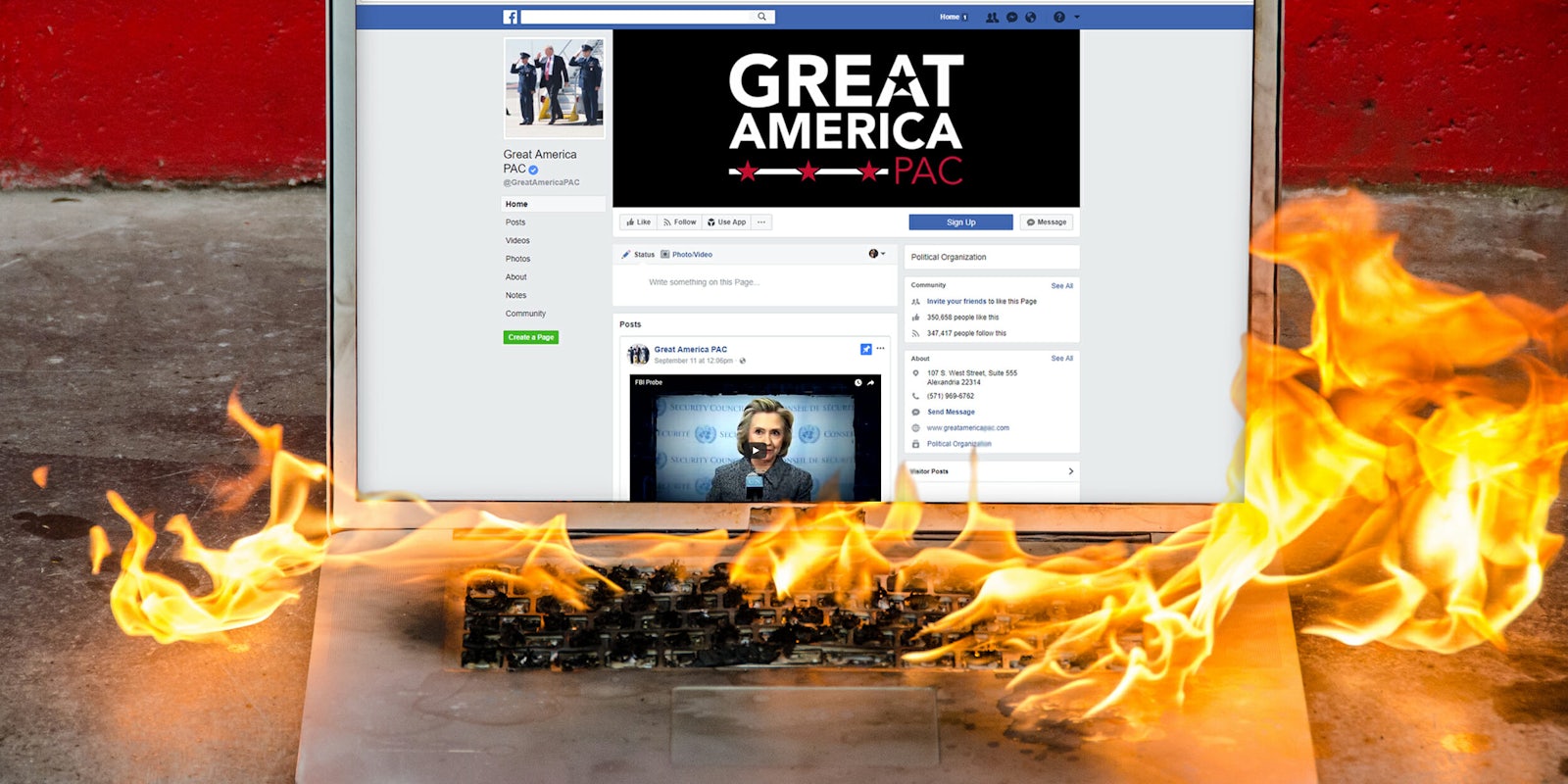Like virtually everything else, political ads have moved into the digital age and are only expected to become more plentiful and more sophisticated in upcoming election cycles.
Political advertisements on digital platforms have come under fire in recent weeks after numerous reports of Russian operatives buying tens of thousands of dollars worth of ads and creating fake events on Facebook in an effort to influence the 2016 election.
The revelations are troubling because while the traditional ways of reaching voters—television, print, radio etc.—still hold weight, and millions of dollars are spent on them each election cycle, they are slowly being replaced by ads on Facebook, YouTube, Instagram, and Twitter as the social media platforms become more entrenched in Americans’ everyday lives.
In 2008, digital advertising accounted for just $22 million of the estimated $6.2 billion spent by campaigns on advertising. That number jumped to an estimated $1 billion during the 2016 election. Political ads on social media now can be targeted to specific audiences or be created in a way that is meant to go viral and be shared by millions of like-minded voters.
Not only are digital political ads enticing because they can be targeted to specific audiences, but there are practically no regulations imposed on them from the Federal Election Commission (FEC).
Political action committees that create ads for candidates are only required to disclose who is paying for the ads if they are bought on websites. Ads used on free social media accounts like YouTube, Facebook, Instagram and Twitter are not as tightly regulated.
For example, as the Washington Post points out, a super PAC in 2012 called “Checks and Balances for Economic Growth” posted two videos on YouTube that attacked former President Barack Obama and Sherrod Brown (D-Ohio) for their stances on coal. The videos noted they were paid by the PAC, but never reported how much was spent on them.
The FEC ruled 3 to 3 not to investigate Checks and Balances for Economic Growth because “free internet postings by groups like Checks and Balances are exempt from regulation.”
According to the FEC, “electioneering communications” only include broadcast, cable, or satellite communications.
But in the wake of Facebook announcing it sold approximately $100,000 worth of political ads to a Russian “troll farm” during the 2016 election, some lawmakers think it might be time to re-think the hands-off approach the government has had on digital political ads.
The social media giant also came under fire when the Daily Beast reported that Russian operatives used false identities on Facebook to create events and organize political protests in the United States before the election.
Sen. Mark Warner (D-V.A.) said Congress should pass legislation to require disclosures on social media advertising similar to what is done for television ads.
“An American can still figure out what content is being used on TV advertising. … But in social media there’s no such requirement,” Warner said. “There may be a reform process here. I actually think the social media companies would not oppose because I think Americans, particularly when it comes to elections, ought to be able to know if there is foreign-sponsored content coming into their electoral process.”
While companies like Twitter and Facebook are private companies, their platforms have become essential parts of the American democratic process. Lawmakers like Warner are likely to continue to push the issue of making these kinds of ad buys public in the future.
“We’re in a brave new world of how people receive information,” Warner reportedly said. “I think we deserve to know if foreigners are trying to interfere in our elections.”


